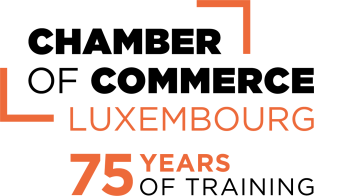
International Affairs

The Luxembourg Chamber of Commerce welcomed a Ugandan delegation on the 29th of November 2017. Accompanied by the Luxembourg Ministry of Sustainable Development and Infrastructure (MDDI) throughout their 4-day visit, the Ugandan delegation was composed of representatives from the Ministry of Works and Transport and from the Uganda Freight Forwarders Association. The delegation visited Luxembourg in order to look into possible business cooperation, get an insight on its transport ecosystem, and receive general information on the Luxembourgish economy.
Mr. Marc Wagener, Director of Economic Affairs at the Chamber of Commerce welcomed the delegation with a presentation of Luxembourg’s general economic situation. He then left the floor to Mr. Malik Zeniti, Cluster Manager at the Cluster for Logistics in Luxembourg who gave an in-depth presentation of the logistics industry in Luxembourg before sharing some insight about the Lean & Green initiative, an international program coordinated by the Cluster for Logistics in cooperation with the Ministry of Sustainable Development and Transport, which aims at reducing the CO2 emissions of logistics activities by at least 20% in 5 years.
During their visit in Luxembourg, coordinated by the MDDI, the Ugandan delegation was introduced to the various major infrastructure and logistics facilities of the Grand-Duchy. They visited the Luxembourg Airport, Luxair Cargo, Cargolux and the Freeport. Following their stopover at the Chamber of Commerce, they drove east to the Port of Mertert which, thanks to its connections by sea, rail and road, contributes to Luxembourg’s proper insertion into the Trans-European Transport Network (TEN-T).
To top off their eventful visit, they were received by the Luxembourg Institute of Science and Technology (LIST) in Belval for an introduction to the organisation’s ongoing training and innovation projects. They concluded their trip with a visit of Arthur Welter in Leudelange and the CFL rail/road multimodal terminal in Bettembourg/Dudelange.
For a landlocked country like Uganda, access to ports through its neighbours as well as adequate transport infrastructure (road, rail, air, inland waterways to facilitate better access to the ports) are crucial since it is the conduit through which trade flows. Regional integration is indispensable in this context in order to expand and to integrate markets, exploit economies of scale, and attract foreign direct investment. In addition, Uganda’s geographical position and the socio-political and security concerns of the region, offer the opportunity for Uganda to become a distribution hub for the other landlocked countries/regions around it such as South Sudan, eastern DRC and Rwanda.
Uganda’s ‘Vision 2040’ sets out the high level strategies the country will take in order to operationalise Uganda’s vision statement which is “A Transformed Ugandan Society from a Peasant to a Modern and Prosperous Country within 30 years”. More specifically, Vision 2040 sets out the goal of attaining upper middle income country status by 2032. The Vision recognises that transport and logistics infrastructure is a key fundamental in achieving this transformational shift and states that “Uganda must urgently attain an integrated transport infrastructure network to spur its own economic growth. This will entail development of a highly interconnected transport network and services optimising the use of rail, road, water and air transport modes.” (Vision 2040:70). The focus on interconnectivity is aligned with Uganda’s aim of engaging in international and regional trade agreements – most notably through its membership of the East African Community (EAC) – as a key strategy for stimulating and sustaining economic growth. (Source: World Bank; 2017; read full report)



